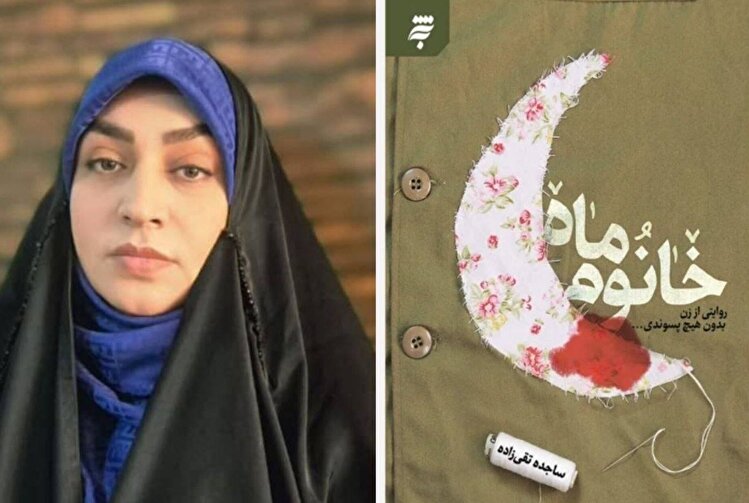What is so contentious about Shabana Mahmood's new asylum reforms?
What is so contentious about Shabana Mahmood's new asylum reforms?

The British government has announced a series of major reforms to the asylum system aimed at reducing arrivals and increasing deportations.
The heavily contentious moves were outlined on Monday afternoon in parliament by Home Secretary Shabana Mahmood, who fielded attacks from across the political spectrum.
The new approach is widely considered to be influenced by Morgan McSweeney, Prime Minister Keir Starmer's chief of staff, as well as Lord Maurice Glasman - the founder of "Blue Labour", which has for years argued for a more culturally conservative Labour Party.
Both Green Party leader Zack Polanski and Jeremy Corbyn, the former Labour leader and a key figure in the founding of Your Party, slammed the plans in comments to Middle East Eye.
But what are the policies the government is proposing?
Taking asylum seeker valuables
The plan that has attracted most attention is remove valuables belonging to asylum seekers to help pay for the costs of processing their cases, an idea apparently borrowed from Denmark's approach to asylum seekers.
Mahmood has said only a "few hundred" asylum seekers to begin with would be admitted into the country per year under her plans, telling ITV the number would "grow over time".
She said the new system will have "multiple safe legal routes, community sponsorship being the preferred model, but also routes for skilled refugees and also for talented student refugees as well".
Refugee status will be made temporary with reviews every 30 months, meaning people given asylum could be deported to their country of origin if it becomes deemed "safe".
Indefinite leave to remain: 20 years instead of five
Significantly, refugees granted asylum will no longer be able to apply for an "indefinite leave to remain" after five years - instead being forced to wait up to 20 years before being allowed to seek permanent residency.
Some asylum seekers, including those who have permission to work or who have been convicted of a crime, will lose state benefits.
The Home Office said support will continue to be available for "those who are destitute". Meanwhile AI-driven technology will be trialled for use in verifying the age of asylum seekers.
Labour has promised to reconsider human rights law, changing how the right to family life under Article 8 of the European Convention on Human Rights (ECHR) is applied in migration cases.
It has been established that children could be deported as part of Mahmood's proposals.
The new measures come amid significant public discontent over immigration figures and the rise of Nigel Farage's Reform UK, which consistently tops national opinion polls.
'Degrading and disgusting'
Net migration reached 906,000 between June 2022 and June 2023, but dropped by more than half in 2024 to 431,000, because of a reduction in healthcare and student visas being issued.
108,138 people claimed asylum last year - one third of which came on small boats.
The top five countries people seeking asylum from in 2024 were Pakistan, Afghanistan, Iran, Bangladesh and Syria.
Speaking to MEE on Monday, former Labour leader Corbyn branded the government's plans "dehumanising, degrading and disgusting.
"Labour is not just paving the path to Reform," he said. "They are implementing their agenda here and now."
Green leader Polanski said: "Nazi history and my own family's perilous journey is not something I evoke lightly.
"To many communities who have been displaced or have fled persecution, the Labour government's statements will have had a chilling effect."
Polanski's ancestors, who like him were Jewish, fled Latvia in the early 20th century due to antisemitic pogroms and eventually arrived in Britain.
"The talk of seizing the remaining assets of some of the most vulnerable people on earth is a disgraceful conversation to even be having," he said.
"It shows how low this Labour government are willing to sink to out Reform the Reform Party."
'Tearing' the country apart
Mahmood, who became home secretary in September after being justice secretary, has apparently changed her views dramatically over the past few years.
As a Labour backbencher she publicly urged a "general amnesty" for "undocumented workers" in Britain.
In government, however, she has justified her sweeping reforms as being "the last chance for decent, moderate politics".
She has said illegal migration is "tearing our country apart. The crisis at our borders is out of control".
Over the past few months, Mahmood has regularly expounded her philosophy of multiculturalism.
The home secretary believes that by reducing and controlling immigration levels, the government can defeat the insurgent right wing and restore harmony.

She told a largely Muslim audience at a late-night event at the Labour conference in September that there are many British people on a "journey between patriotism and full blown ethno-nationalism".
The government, she said, must "persuade them that they should come back to the patriotism around which all of us can unite... It is about having a migration system that is fair, that is well managed, that is controlled, that does involve contribution, because we know that common people contribute."
Mahmood explained: "The British spirit is very generous and very welcoming, and it's our job to unlock all of that. And we also need safe streets and a secure nation.
"And once all of those four pillars are in place, I think that this country returns to its inherent openness, its inherent tolerance and its inherent generosity."
But not everyone is convinced of this logic. Several Labour backbenchers challenged her in parliament on Monday, condemning the proposals.
Labour MP Kim Johnson told MEE that Mahmood's move was a "misguided attempt to win votes by lifting the rhetoric from the far-right Reform playbook by mimicking their racist, divisive hate-filled narratives".
At the dispatch box, Mahmood hit back furiously at criticism from Liberal Democrat home affairs spokesman Max Wilkinson, who said she was "stoking division by using immoderate language".
Mahmood retorted: "Unlike him, unfortunately, I am the one that is regularly called a fucking Paki and told to go back home.
"It is I who knows, through my personal experience and that of my constituents, just how divisive the issue of asylum has become in our country."
Right-wing praise
Reform's Farage said on Monday that Mahmood "sounds like she is auditioning for Reform". But he insisted that her proposals would have no positive impact unless Britain leaves the ECHR, a key Reform policy.
It is thought that there will not be a large-enough backbench rebellion for the government to U-turn on the proposals.
Shabana Mahmood, the UK’s new Home Secretary, once stood firmly with Palestine. She was even invited to speak at rallies, vocally supporting the Palestinian cause up and down the country.
— Middle East Eye (@MiddleEastEye) September 8, 2025
But in her first days in office, Mahmood appears to be adopting the government's line pic.twitter.com/MXDXAc2J5K
And Mahmood is being roundly praised by right-wing commentators.
This comes as the prime minister's popularity is at an all-time low and speculation mounts that the party will oust him within the next six months.
Mahmood is widely believed to have the backing of Morgan McSweeney, the strategist behind Starmer's rise.
She is the preferred prime ministerial candidate for those in the party who believe Labour must move to the right on key issues like immigration to combat Reform.
Meanwhile Health Secretary Wes Streeting is the centrist option for the premiership. His rhetoric in recent months has been particularly strong on attacking Reform and accusing it of bigotry.
With these major asylum reforms, it is Mahmood's approach that has taken centre stage.










